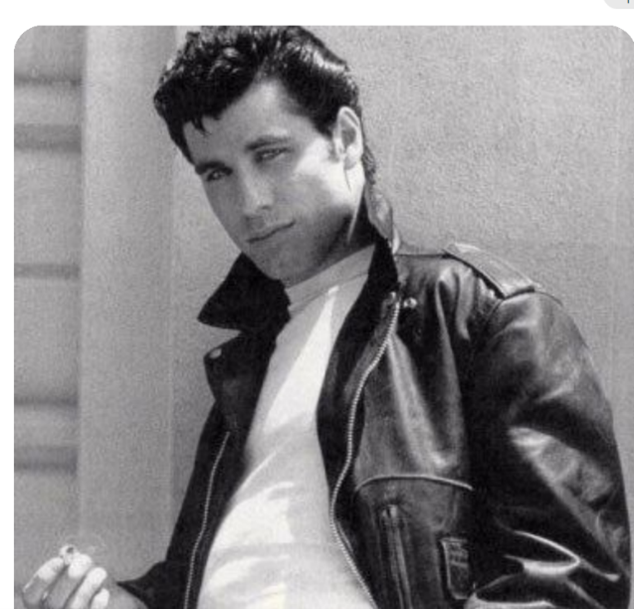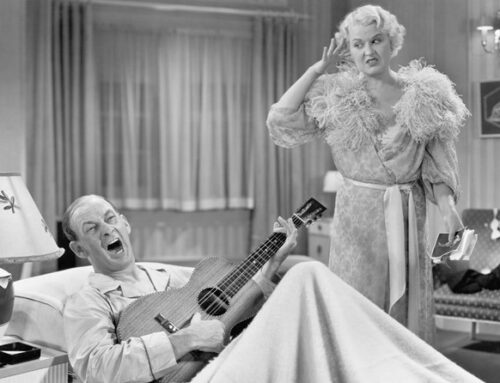
Whether John Travolta in the movie Grease wore it better than Harry Winkler in Happy days is neither here nor there, the fact remains that the leather jacket leaves an impression. Is it just me, or does everyone consider buying a leather jacket at some point in their life? Maybe the subtle voice within tells us, “Be a badass,” It will look reallllllly cool!” Of course, as we age, most of us surrender to the idea that the leather jacket is best left to memories of years lived prior, for by the time most of us reach our midlife, a leather jacket of this sort would only invite giggles from teenagers, or concern from our adult friends. Yet, we all can agree that a great leather jacket is badass. So, where is the connection between a leather jacket and our emotions? Keep reading….
“Cassie called again; she is upset with how I handled my mom’s affairs,” Mary said. Those words might as well have trickled out of her mouth like water drops slowly dripping from a nearly closed-off faucet; she had shared similar words many times with me. As I heard the words, I visioned Charlie Brown’s teacher, “whah whah whah”. I felt guilty for thinking that way; the truth back then was that Mary’s dilemma challenged me. I questioned my ability as a coach to help her discover a new way of looking at her relationship with her adult daughter. Mary’s daughter Cassie continually criticized Mary about her lifestyle. Mary was celebrating a few years of sobriety; she held a steady job, probably spent too much money on her adult children, and was married to her alcoholic husband, who still drank, AND she was still sober and committed to her sobriety. Sometimes, concealing my frustrations about Cassie’s behavior was slippery for even me, and she wasn’t even my kid.
“Mary, I want to talk to you about the Emotional Jacket,” I said. As usual, Mary was eager to learn something new. She was studious in that way. I explained to Mary that Cassie (her daughter) represented an emotional hook of sorts. “Imagine a cool-looking leather jacket hanging in your closet. You know it’s not yours to wear, it doesn’t even fit you – it’s too heavy, but it looks very appealing and tempestuous. Although you understand it’s not your jacket, you still put it on. At first, it feels good. Looks good. You revel in your idea to try it on. But, the longer you have it on, you realize you are becoming uncomfortable in it. You feel the weight of it. It’s too heavy for you. It’s even bigger than you originally thought. It’s also hot. You suddenly regret putting it on. What were you thinking, you ask yourself. Next, you become pissed off at the person WHO owns the jacket – blaming them for your misery! It’s as if they violated you by putting their jacket in the closet. You then realize you have no idea how to take off the jacket that wasn’t yours to put on in the first place. Mary, you wear Cassie’s emotional jacket whenever she expresses disappointment with you or herself. You emotionally wear her disappointment as if it defines who you are. Her emotions are not yours to wear; they are not your jacket.” There was a long pause as Mary digested what I shared with her. She replied, “I get it; Cassie has her own opinions based on her life experience, and her emotions are a result of her life; she cannot possibly possess my perspective of the years I’ve lived, especially around my mother; how could she? Her fear, frustrations, and sadness are hers to own, and those emotions represent the jacket she wears. When I decide to wear her emotional jacket, I feel uncomfortable because those emotions are not my experience, nor should they be. My job is going to be to learn how NOT to wear her emotional jacket, or my husband’s for that matter.” I knew Mary understood another layer of how co-dependency and emotionally positioning herself within her relationships was working within her life.
When working with clients who seem prone to wear their family and friends’ opinions and judgments, I use the Emotional Jacket analogy. This allows a reframing of how they perceive their relationships and, more importantly, how they operate within them. Many people position their mental and emotional health in response to how they perceive the relationships in their life feeling at any given time. I base how I’m doing AFTER checking in with YOUR mood and disposition. I do not have my agency established UNTIL I see how you are feeling. Ever heard the saying, “I feel like I’m walking on eggshells around you?” This is a good example of someone treading lightly because when they are around someone who appears agitated, frustrated, or intimidating, they recoil and “stand down” per se. The goal becomes to identify when the Emotional Jacket looks appealing and learning not to put it on.
Susan Denee is the creator of the podcast, Know Your Crazy, syndicated through Transformation Talk Radio. She is a writer and a life coach. She is certified in High-Performance Coaching and is the creator of Emotional Elevation Coaching. She helps others identify the shame-based thinking and less desired behaviors that hold them back from accomplishing their next level of satisfaction. Her podcasts are known for their inspiration combined with genuine RAWNESS, in which she conveys the problem and the solution. Susan Denee is a sought-after industry speaker for the financial and healthcare industry and the addiction and alcoholism recovery community, focusing on healthy communication within relationships.



